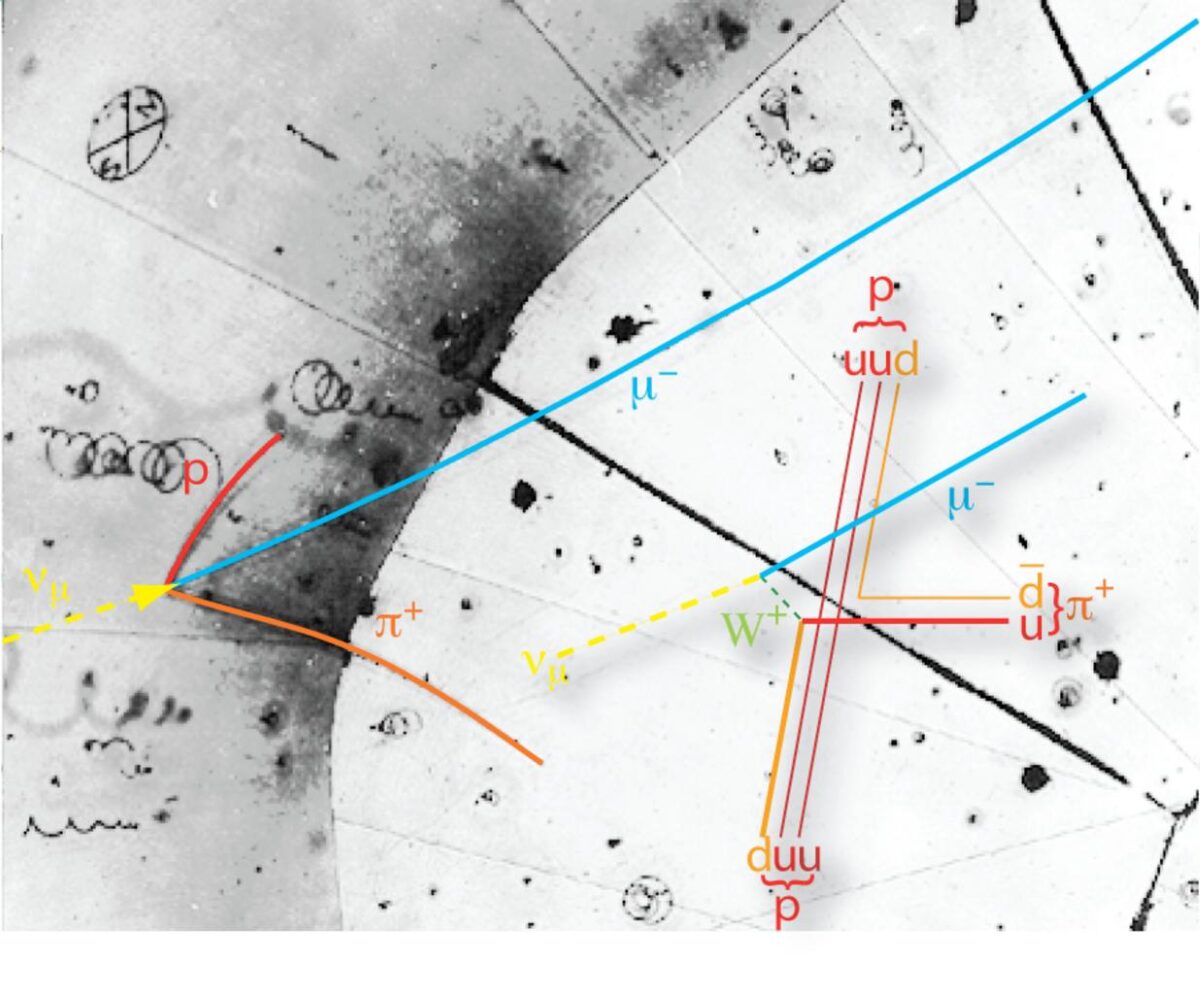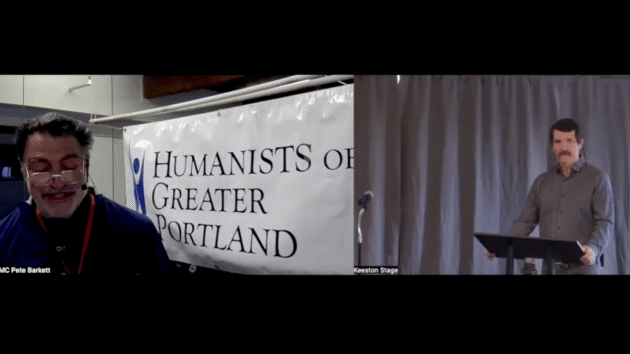The elbows of the dominant culture of the 21st century rest complacently on a shelf made of three planks, or premises. When those three premises fall out from under our palm-propped noggins, as they are certain to do, expect heads to roll.
Stemming from the three dead-wrong but convincing beliefs that suspend Western Society in a cloud of unknowing, three cataclysmic catastrophes haunt the internet and airwaves: the climate crisis; the sixth great extinction, and the long-overdue announcement of the extinction of civil democracy and community.
Separate But Superior?
The first big lie we must challenge – because the three aforementioned catastrophes are its outgrowth – is the notion that (some privileged) humans are separate from and superior to Nature.
Although human supremacy is a cultural truism that nearly nobody living in industrial societies seriously questions, the truth is that no one, not even billionaires taking rides in oversized Roman candles, can survive, privileged as they are, if separated from the natural world. Three simple examples will demonstrate this subversive fact.
Consider: every one of us has lungs that are inhabited, moment to moment, by Earth’s atmosphere. The oxygen that powers our organs is exhaled into the surrounding air by trees. We take it in; we bellow it out. Separate us from the air we’re immersed in and we die; it’s that much a part of us. I mean, despite showing the world they could do without planet Earth for a few minutes in suborbital weightlessness, had the three billionaire cashtronauts opened the hatch to expose their bodies to the world beyond Earth’s atmosphere, they would have quickly died. Now who’s separate? Now who’s superior?
Consider: each of us hosts a whole ecosystem of microbes in our digestive systems without which we would die of starvation, infection or other ailments. Gut microbiotas include bacteria, fungi, and viruses that are not part of the human organism, but without them, human life would be impossible.

Consider: each cell in the human body can be studied as a separate life, but we know that those cells make up tissue and that tissue is what constitutes the organs of our bodies. We mistakenly think of our bodies as separate and autonomous living entities with value much greater than any of the single cells, or tissue, or organs of the human body. The mistake is not seeing all of these as co-creators of our own lives, and the mistakes we’ve made as a result of that blindness are profound and planet-wide.
The truth is that we live within macroscopic ecosystems on which our lives depend, and we are inhabited by microscopic ecosystems that also make our lives possible. We are neither separate from nor superior to, but rather part of and utterly dependent upon the non-human world around us, inside and out. Wouldn’t you say?
Ragged Individualism and the Death of Community
Among other examples of human exceptionalism coming out of the European era of so-called “enlightenment” is the philosophy of individualism. Legal rights for Individual “persons,” particularly rights attached to property and, specifically, corporate property, are at the rotting core of Western society’s pathological relationship with the other-than-human world, as well as those humans espousing other-than-Western world views.
At the same time that rights of individuals are continually championed by so-called radicals for social justice, they get only grudging lip-service from politicians pandering for votes. The legal rights conveyed by property and wealth ownership to those who enjoy monopoly control over land, resources, monetized ideas, and other forms of abstract wealth, are routinely defended against all opposing policy proposals by publicly funded armies, police, courts, and bureaucrats.
To sustain the unfounded supremacy of privileged individuals, collective community rights have been villainized by association with scare words like “socialism” and “communism.” Collective decision-making through democratic processes is forbidden to encroach on the advantages of the privileged when their legal rights are flexed against our communities. The privileged “private sector” is immune to public (collective) governance and common sense, which sees through the pretense of corporate individual personhood and the free-from-liability collective of investors who make up anti-social corporate “entities.”
The point is this: synthetic collectives, such as corporations, and human-made environments, like cities and cyberspace, protect privileged individuals from intercourse with organic environments and communities, human and non-human. Like Elon Musk’s space suit, these inorganic environments keep the privileged thriving even as they make the natural environment unlivable for organic life that can’t afford life systems prostheses.

Privileged individual separation from and superiority to the reality of human and non-human community frames the necessary mindset capable of rationalizing their destruction. It’s a formula for disaster that is playing itself out right now, right where you are breathing. Wouldn’t you say?
Reductionism to Seductionism
The deconstruction of the empirical world through the instruments of scientific reductionism was bound to lead to the kind of self-distancing from reality that psychologists call madness. In the case of science, a widely-held social consensus makes an exception. Belief in abstract thought is acceptable, even if impenetrable to most humans. The consensus that scientific knowledge is reliable is built on belief and trust in the assertions of others, not first-hand experience, even though the often heard admonishment that we “trust the science” is not scientific at all.
The current global empire of materialism was built on knowledge about how to extract (abstract) wealth from the empirical world and use the abstractions that are wealth to manipulate other human beings. As part of the scientific mystique, researchers use non-human measuring devices to discover new tools for manipulation, in a professed effort to avoid subjectivity and thus attain objective knowledge.
Ironically, scientific “objectivity” requires that “subjective” observations by humans be abandoned because biased mind chatter “taints” human interpretations of raw perception. Yet, the raw data gathered by mechanical measuring devices is interpreted into explanatory narratives by scientists or their patrons. Why are we persuaded to accept those subjective translations of mechanical observations as superior to our interpretations of evidence gathered by our own senses?
The turmoil in cosmology and quantum physics stemming from new evidence gathered by the James Webb telescope is a prime example of how the meanings we attach to our observations, human or mechanical, are culturally invented and not free-standing truths. In the past few weeks, rock-solid scientific theories, including the Big Bang and quantum mechanics, have been blown apart. While they existed as scientific “truths,” they existed in our minds, but nowhere else in the universe, it turns out.

Reductionism, more than subjective sense-experience, makes tinctures and abstractions out of raw data, and intellectually defines, devoid of human understanding, a world that defies common sense. Belief in absurdities like the invisible hand of the market and human supremacy attach themselves to synthetic human experience through language, which imposes collective amnesia and fills the vacuum with false memories, called anamnesis. The resulting phenomenon of meaning is established at some root level in the mind. We call it “belief.” And what we believe, we act-out; we be-live it in real time.
Today the secrets learned from scientific reductionism are used to invent new systems for global communication of a self-organizing consensus that’s built on mistaken premises. Abstract ideas are translations of reductionist experimental data into human language. They are not more real and accurate than the organic experience of human senses. But we are seduced into trusting credentialed experts and rejecting the evidence of our eyes and ears, intuition, and imagination.
The laws of nature are not amendable, but our ways of relating to them are. When the laws of humans conflict with reality, it is the human constructs that must yield and change. Even if it takes several global catastrophes at once to convince us of this truth. In the end, the laws of humans are at best aspirational, and the laws of nature are immutable. They are likely to prevail. Wouldn’t you say?



